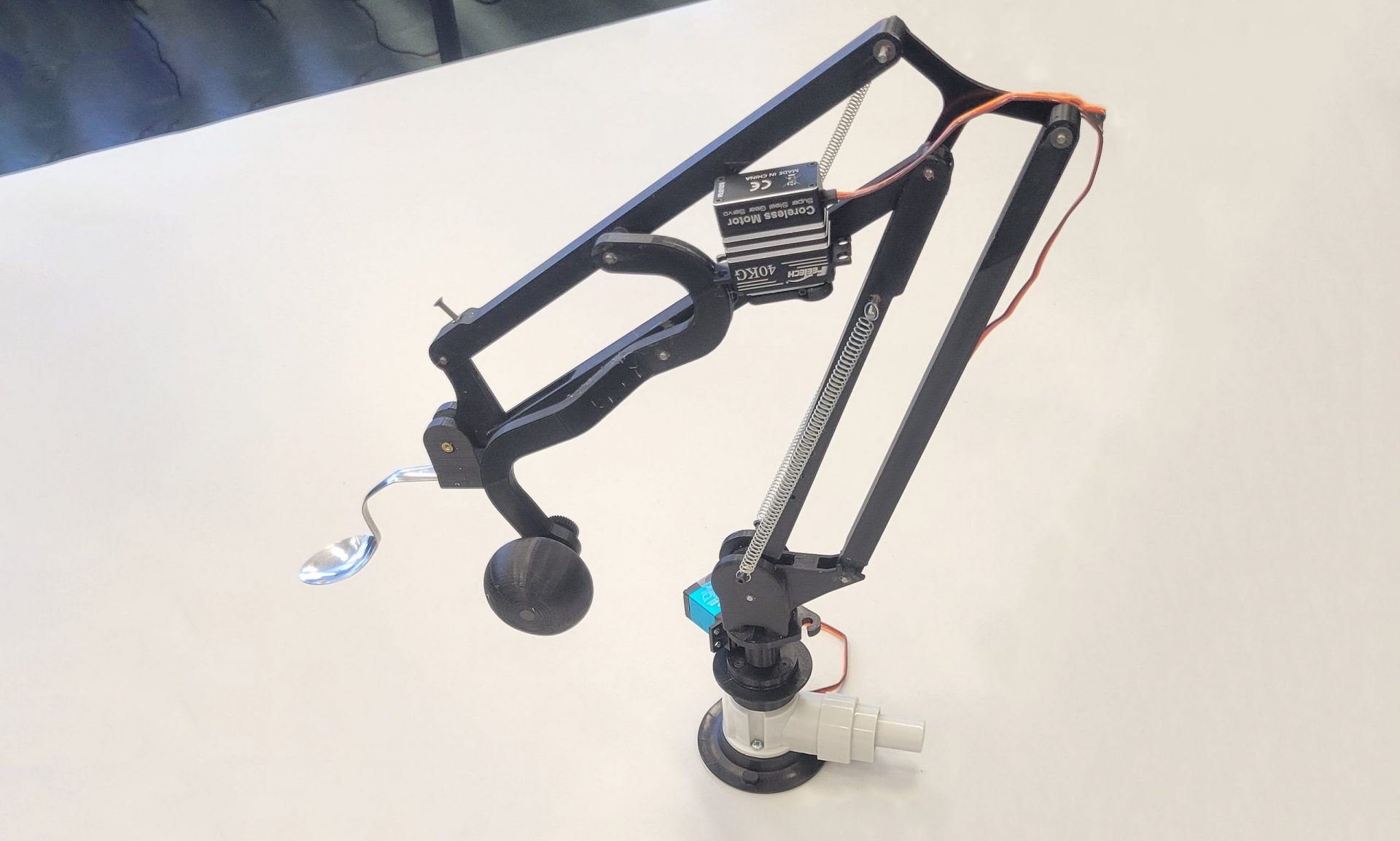
Eating is a daily challenge for many people with cerebral palsy, muscular dystrophy or Parkinson’s disease. Spasticity and tremors are movement disorders that affect the upper limbs and prevent those affected from eating independently. Unfortunately, existing technologies that could help these people improve their quality of life are for the most part unsuited to their situation – when they are not simply too expensive, some costing several tens of thousands of dollars.
The work of Alexandre Campeau-Lecours, a professor in the Department of Mechanical Engineering at Université Laval, aims to reverse this status quo. In collaboration with teams working in rehabilitation, the researcher and his team have developed a motorized system that the user holds in their hand while eating. More specifically, the scientists have developed algorithms that ensure that this eating aid supports and stabilizes the user’s movements, thereby greatly minimizing the disturbance caused by spasms and tremors. Through mechanical innovations and optimizations, the team was able to develop a solution that is almost ten times less expensive than existing solutions.
Dozens of iterations of this robotic assistance technology were required before arriving at the version that is now in discussion for commercialization. This mechatronics innovation is currently the focus of a clinical study to quantify the improvement in quality of life for its users. The knowledge developed through this research project is transferable to other tasks that are affected by movement disorders in the upper limbs, such as writing.
